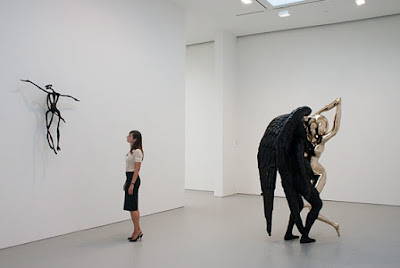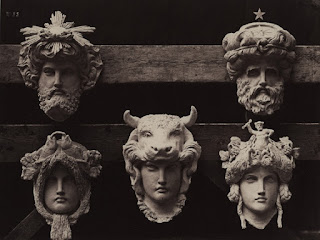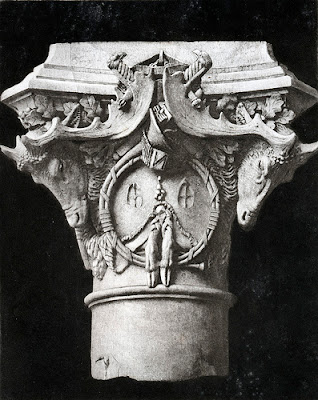4844. A confused, troubled look
spread across his face, but then the preposterousness of the idea that
Mussolini would have such thoughts caused his image to fade gradually into
nothingness.
4845. I am quite sure that if he thinks about anything, it is about mushrooms, just like all dead men.
4846. I continued sitting at the table sipping my coffee, but then a policeman came out and asked me if I needed any help. After that he escorted me back to the exhibition hall.
4847. As I was leaving, I noticed
that there were a lot of those little rooms in the exhibit with the black
curtains over the doors behind which you find video installations.



















































